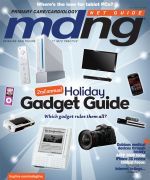Tech Tips: Talk to Me, Doctor
Secure electronic communication makes sense for providers and their patients.
It is a resounding testament to the inertia of our profession that we have not adopted electronic communication with our patients. The advantages of Patient—Provider Secure Messaging (PPSM) are so obvious that they hardly need repeating. However, PPSM does not refer to your every day e-mail due to security and HIPAA concerns. These messages must be authorized, certifi ed, and accurate; and times of transmission and reception must be documented. This column will focus on the available options for implementing PPSM and provide suggestions on how to determine which methods are best suited for your practice.
I know there are serious arguments against using PPSM; it takes too much time to use (for which I am not being paid) and I am afraid my patients would use it inappropriately. However, studies have shown that neither scenario happens. Patients who e-mail their physicians are respectful of the doctor’s time— especially if they are provided with guidelines for the appropriate use of communication. Further, a decrease in phone calls to the offi ce can create workfl ow effi ciencies. Remember, the bulk of calls to a practice do not involve medical questions, they are mostly business and administrative questions.
Expanding on the article about patient—physician e-mail published in the January issue of MDNG, I want to discuss three categories of programs that provide medical practices the ability to securely communicate with patients electronically:
Full service practice portals RelayHealth, Medem, and MedFusion are a couple examples. In addition to messaging capabilities, these sites can provide:
• Front office support (ie, money matters). They can offer remittance statements and account balance, online bill payments, and even verifi cation of insurance and credit status.
• Back offi ce support with functions such as the ability for patients to request appointments or prescription refi lls. Offices can generate patient reminders to decrease “noshows.” One product, Smile Reminder, can send appointment reminders to patients with text messages.
• Education materials are available to patients.
• E-prescribing (be careful) is available. These sites show that prescription information is faxed to a pharmacy and are not in compliance with Medicare Part D regulations; thus, they do not qualify for CMS bonus monies.
Dedicated patient portals For communication without all of the frills, Medem off ers iHealth—a clinically focused subset of their secure communications for $395/year. Subscribing to AskMedica will provide you with a more focused and economical program for $300/year, and can route messages to the appropriate offi ce recipient. Patients can register for this service (no charge), which does not place additional clerical burdens on your practice.
E-mail encryption programs For an even less expensive way to provide PPSM ZixMail (www. zixmail.com), a leader in the fi eld of secure medical messaging, is available and off ers an encrypted, HIPAA-compliant mail service for $125/year. I downloaded the 30-day free trial of this program and am impressed with how easy it is to use. Th is program is available as a standalone mail program or as an add-on module to Microsoft Outlook. With this latter version, you generate a message just like any new message in Outlook, click encrypt, and voilà, the message becomes unreadable to anyone but the intended recipient. A potential diffi culty with this version is that in order for the recipient to read the message, they must click a link to the Zix server and register (for free) in order to retrieve the message. Zix has more elegant solutions, but the basic service may require some patient education.
Do you think your practice is ready to connect with your patients online? A realistic appraisal of the actual demand for such a service would be useful because unless a large number of patients would actually use the PPSM, phone calls are not noticeably reduced and the offi ce staff may grumble about more work and the responsibility of checking electronic messages. Th is would create the ironic need to market a service to your patients that may not even interest them.
Dr. Zuckerman is an MDNG Healthcare IT Advisory Board member, and the Chief of Neurology and Medical Information Offi cer at Baton Rouge General Hospital in Louisiana.
